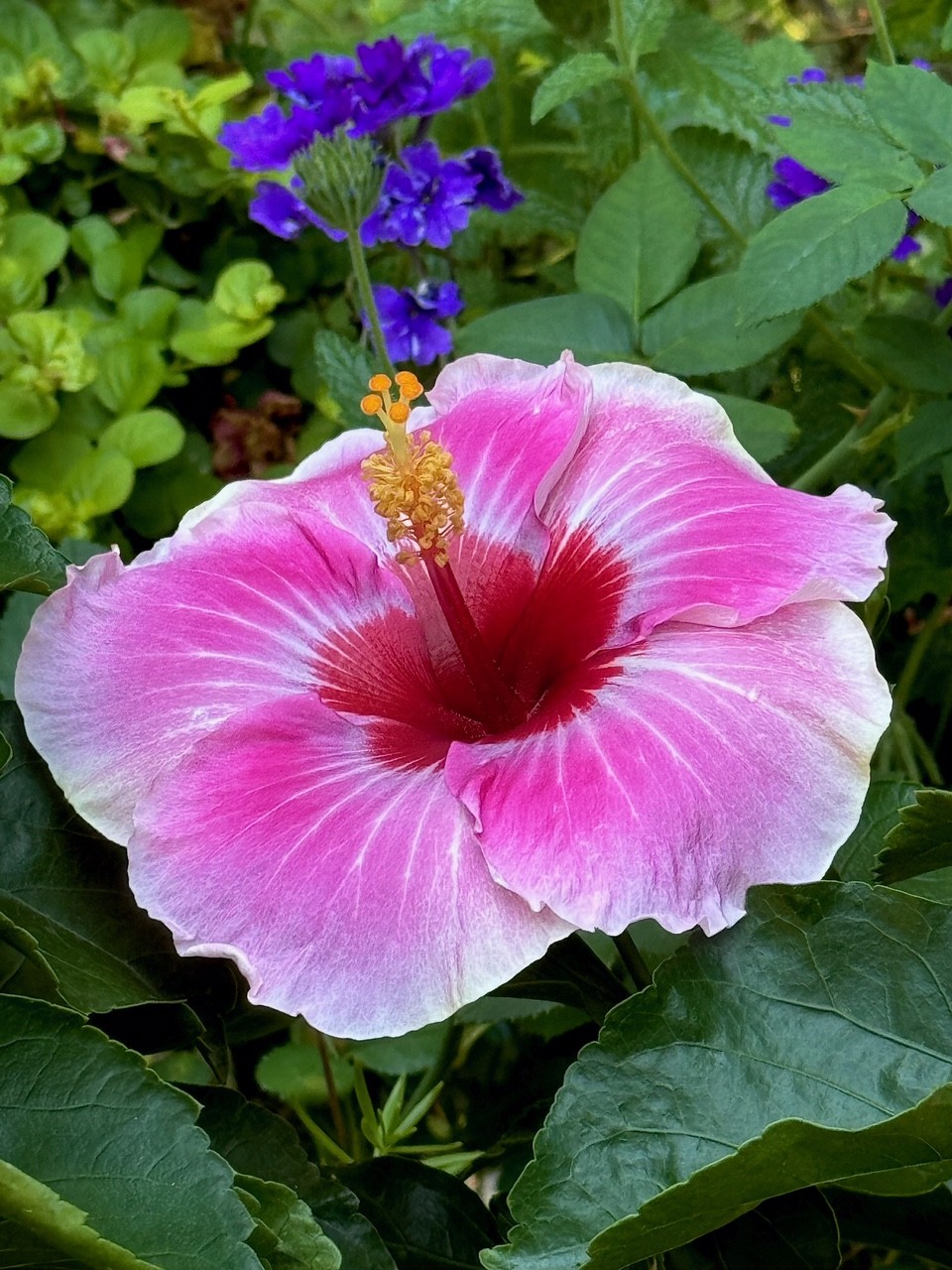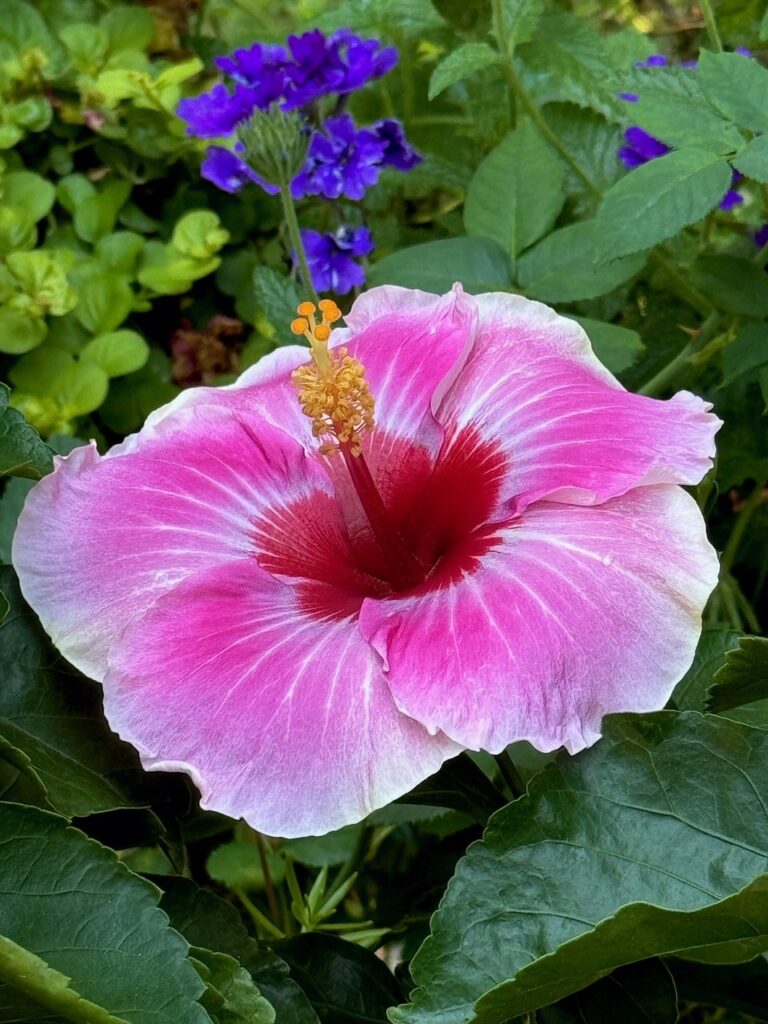Outdoor
Grazing North Texas: Wild Onion

By Tony Dean, [email protected]
There are 14 species and several varieties of wild onion in Texas. These herbs are biennial or perennial and all are strongly scented with an onion or garlic/onion scent. During early spring in Texas, underground bulbs (small onions) give rise to two long narrow leaves and a stalk that grows between the leaves which supports a cluster of small flowers. These flowers can be white, yellow, pink, red, or purple.
Wild onions belong to the genus Allium which includes not only onions, but also shallots, scallions, leeks, chives, and garlic, all of which are edible. Wild onions are common over much of the United States and grow in every region of Texas. They are adapted to almost every soil type.
Both wild onions and cultivated onions contain trace amounts of a toxic agent called N-propyl disulfide, which destroys red blood cells. The amount of toxins varies widely in plants, varieties and species, and a large amount would need to be consumed for poisoning to occur, so poisoning issues in people or livestock are very rare.
To read more, pick up a copy of the June issue of NTFR magazine. To subscribe by mail, call 940-872-5922.
HOME
Parting Shot

By: Jelly Cocanougher
Delicate microbes buried just beneath the surface. We walk by them, unbeknownst to us. Spores, spawn, and sclerotia, each with distinct characteristics. It is said that these fungi are all connected, speaking to one another as they populate the earth. The interconnectedness of all living things and the decaying world, such beauty lies within these otherworldly alien organisms.

HOME
Varietal Honey

By: Landon Moore
Landon Moore is the Wise County 4-H President and a member of the Wise County 4-H County Council. He is involved in beekeeping, as well as raising rabbits and poultry.
This essay was one that he wrote, and it was named the champion for both the Texas and National chapters of the Foundation For The Preservation of Honey Bees.
Varietal honey is honey that comes from a single source.
This honey has a flavor derived from the source flower and can even have a similar scent. In general, lighter colored honeys have a more subtle taste and dark honeys are more intense. Varietal honey has been compared to wine, in that honeys produced in different years can be distinguished, even if they come from the same flower and location.
This phenomenon is called terroir and is responsible for the individual taste of each honey harvest.
To read more, pick up a copy of the October edition of North Texas Farm & Ranch magazine, available digitally and in print. To subscribe by mail, call 940-872-5922.

HOME
The Garden Guy: America’s Sweetheart

By: Norman Winter | Horticulturist, Author, Speaker
Early in the summer, I was sent a press release that caused one of those holy wow moments. The headline said it all, “Proven Winners ColorChoice Expands Catalog with the Addition of Hollywood Hibiscus.”
I had already become familiar with the Hollywood Hibiscus series and was thrilled that the Proven Winners was adding this to their lineup.
This flower is nothing short of beautiful and exhibits prolific flower production. The flowers show three distinct colors, deep red in the very center, then the majority which is a rich rose pink with lighter pink to white along the margins.
To read more, pick up a copy of the October edition of North Texas Farm & Ranch magazine, available digitally and in print. To subscribe by mail, call 940-872-5922.

-

 Country Lifestyles2 years ago
Country Lifestyles2 years agoScott & Stacey Schumacher: A Growth Mindset
-

 Country Lifestyles8 years ago
Country Lifestyles8 years agoStyle Your Profile – What your style cowboy hat says about you and new trends in 2017
-

 HOME8 years ago
HOME8 years agoGrazing North Texas – Wilman Lovegrass
-

 Equine1 year ago
Equine1 year agoThe Will to Win
-

 Country Lifestyles5 years ago
Country Lifestyles5 years agoAmber Crawford, Breakaway Roper
-

 Outdoor9 years ago
Outdoor9 years agoButtercup or Primrose?
-

 Country Lifestyles8 years ago
Country Lifestyles8 years agoJune 2016 Profile – The man behind the mic: Bob Tallman
-

 Country Lifestyles8 years ago
Country Lifestyles8 years agoDecember 2016 Profile, Rusty Riddle – The Riddle Way




